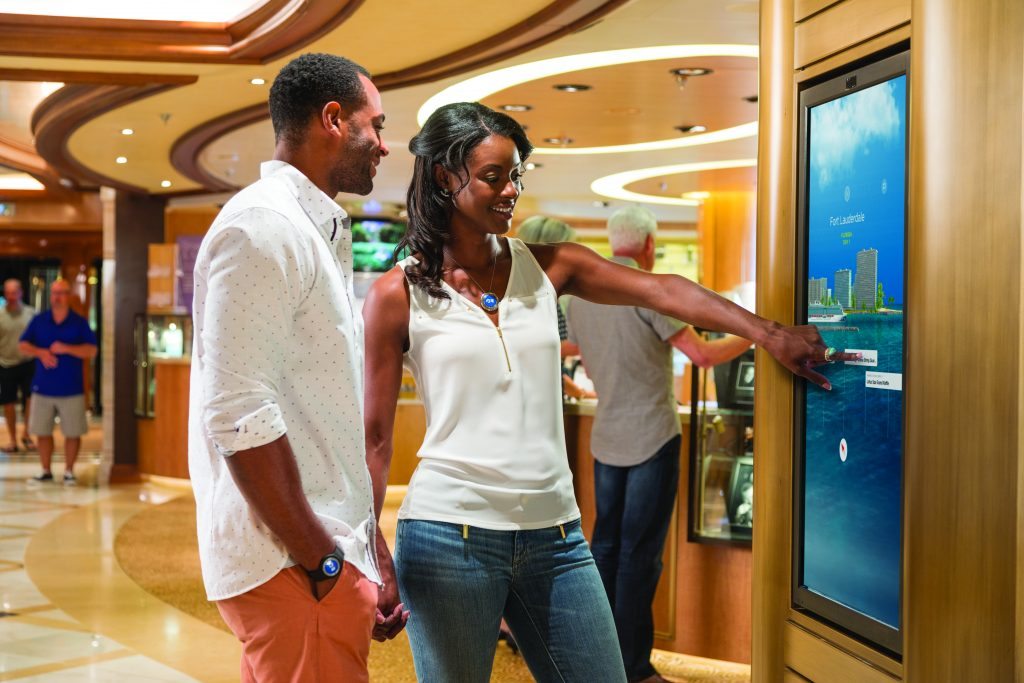Carnival Corp. Wants Wearable Tech to Elevate the Cruise Experience

Skift Take
We think this will take some getting used to for cruise passengers and crew alike. But the widespread acceptance of Disney's MagicBand — at least in Florida parks — shows that vacationers can adapt and embrace new forms of technology, especially if it improves their trip.
The Walt Disney Company changed the vacation game with its MagicBand technology that gave visitors control over multiple parts of their trip with one wristband.
Taking a page from that playbook — as well as a key architect of the Disney project — Carnival Corp. on Thursday plans to unveil its own wearable device that executives say will allow for unprecedented customization and service at sea.
CEO Arnold Donald is scheduled to announce the technology — a disc the size of a quarter — during a keynote address at CES, the electronics show. With no screen or menu, the Ocean Medallion syncs to an interface that can be accessed through smartphones and tablets, kiosks in port, interactive portals onboard, devices carried by crew, and stateroom TV sets.
The goal, Donald told Skift, is to make passengers feel like their needs are being anticipated and met at all times.
"Who wouldn’t want to feel like they had a constant personal concierge with them every second, from the time they started planning a trip until they got back from the trip?" he said.
The Ocean Medallion will let passengers navigate embarkation more easily; enter their stateroom just by walking up to it; navigate the ship; make purchases and reservations; take part in interactive gaming outside casinos; and access portals throughout the ship for information.
All the while, the devices will be tracking location and activities to provide real-time information on preferences so that data can be used to provide more customized recommendations, reminders, and offers.
"Our strategy is not to collect intelligence, study you, and then market and sell to you," said John Pa
